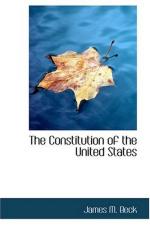In his speech in the House of Commons on January 30, 1621, Bacon saw a vision of the future and predicted the growth of America, when he said:
“This kingdom now first in His Majesty’s Times hath gotten a lot or portion in the New World by the plantation of Virginia and the Summer Islands. And certainly it is with the kingdoms on earth as it is in the kingdom of heaven, sometimes a grain of mustard seed proves a great tree.”
Truly the mustard seed of Virginia did become a great tree in the American Commonwealth.
One of Bacon’s nephews, also of the Inns of Court, Nathaniel Bacon, became the first Liberal leader in the Colonies, and led the first revolt against colonial misrule. He was probably of Gray’s Inn, for it is difficult to imagine a Bacon studying in any Inn than the one to which the great Bacon had given so much loving care.
Due to these charters, on July 30, 1619, the little remnant of colonists whom disease and famine had left untouched were summoned to meet in the church at Jamestown to form the first parliamentary assembly in America, the first-born of the fruitful Mother of Parliaments. It was due to Sandys not only that the first permanent English settlement in the Western World was planted at Jamestown in 1607, but that a later group of “adventurers”—for such they called themselves—destined to be more famous, were driven by chance of wind and wave to land on the coast of Massachusetts. Thus was established, not only the beginning of England’s colonial Empire—still one of the most beneficent forces in the world—but also the principle of local self-government, which, in the Western World, was destined to develop the American Commonwealth. The compact, signed in the cabin of the Mayflower, while not in strictness a constitution, like the Virginia Charter, was yet destined to be a landmark of history.
Sandys suffered for his convictions, for the party of reaction convinced King James that Virginia was a nest of sedition, and the arbitrary ruler, in the reorganization of the London company, gave a pointed admonition by saying: “Choose the devil, if you will, but not Sir Edwin Sandys.” In 1621 he was committed to the Tower and only released after the House of Commons had made a vigorous protest against his incarceration. His successor as treasurer of the London company was Shakespeare’s patron, the Earl of Southampton, and it is not a fanciful conjecture to assume that, when the news of the disaster which befell one of the fleets of the London Company on the Island of Bermuda reached England, it inspired Shakespeare to write his incomparable sea idyl, The Tempest. If so, this lovely drama was Shakespeare’s unconscious apostrophe to America, for in Ariel—seeking to be free—can be symbolized her awakening spirit, while Prospero, with his thaumaturgic achievements, suggests a constructive genius, which in a little more than a century has made one of the least of the nations to-day one of the greatest.




